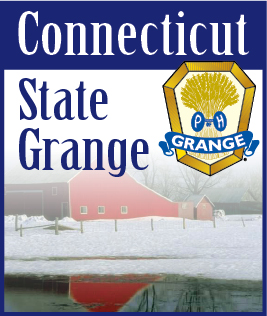| APRIL 26, 2016 -- The USDA National Institute of Food and Agriculture (NIFA) has awarded Dr. Jason C. White and Dr. Wade Elmer of the Connecticut Agricultural Experiment Station (CAES) a three year $480,000 competitive grant to study how nanoscale forms of micronutrient fertilizers can be used to suppress crop disease and increase overall yield. Additional collaborators on the project include Professor Jorge Gardea-Torresdey of the University of Texas El Paso and Dr. Christian Dimkpa of the Virtual Fertilizer Research Center.
Soil pathogens significantly limit agricultural production, reducing crop yield by 10-20% and resulting in billions of dollars in annual losses. “This shortfall in food production will worsen with a changing climate and an increasing population,” said Dr. Jason C. White, Vice Director and Chief Analytical Chemist, CAES. Nanotechnology can play a critical role in maximizing global food production and achieving food security. Current approaches have focused on nano-enabled conventional agrichemicals, nanosensors, and waste treatment strategies. However, according to project co-investigator Dr. Wade Elmer, Chief Scientist, CAES, “Little is known about the effects of nanoparticle (NP) elements on disease suppression, macronutrient uptake, and crop growth.” In preliminary investigations conducted at CAES, results showed that an initial investment of $44.00 per acre for nanoscale copper resulted in up to a 58% increase in yield, potentially raising grower income from an estimated $17,500/acre to over $27,600/acre without any detectable increase of copper in the fruit. The current USDA project will expand upon these findings, using both greenhouse and field trials with multiple crops and nutrient amendment regimes to not only provide a mechanistic understanding but also to facilitate development of a practical disease suppression strategy that could be deployed to the grower on the farm.
The project will also include formation of a center of excellence entitled the Center for Nanotechnology and Agricultural Pathogen Suppression (CeNAPS). According to Professor Jorge Gardea-Torresdey of the University of Texas El Paso, “The Center will not only ensure project efficiency by allocating resources and minimizing redundant activities and research but also will utilize existing teaching and outreach resources at UTEP and CAES to actively engage both students and stakeholders.” |
